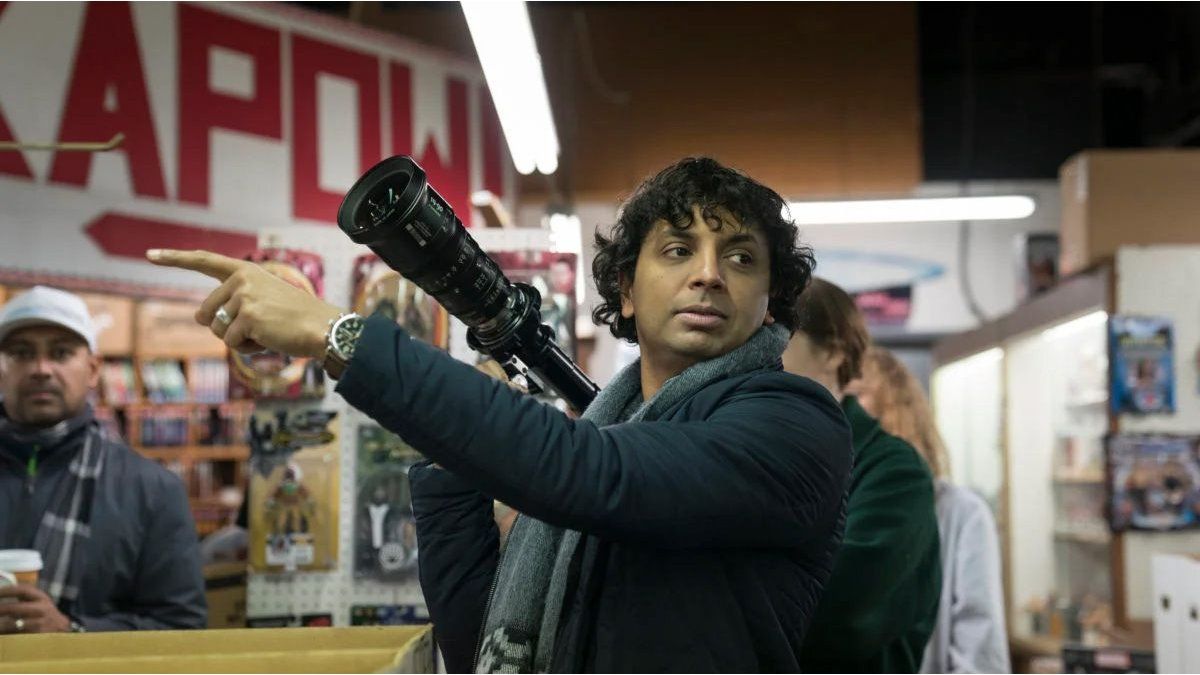The director M. Night Shyamalan went on trial Tuesday over accusations that he copied from an independent film to make the TV series. Apple TV+ Servant.
Francesca Gregorinian Italian-born director, is suing Shyamalan and Apple for $81 million, alleging that the show stole key elements from her 2013 film, The truth about Immanuel.
His attorney, Patrick Arenz, showed jurors clips of both projects during his opening statement Tuesday in federal court in Riverside, California. He argued that both show a delusional mother who cares for a doll as if it were a real baby and a nanny who is complicit in the delusion..
“It’s a simple case,” Arenz told the jury. “There would have been no ‘Servant’ without ‘Emanuel’.”
Shyamalan sat behind defense attorneys, alongside producer Taylor Latham and Matt Cherniss, the head of Apple TV+ programming. Tony Basgallopthe British writer who created the series, sat at the defense lawyers’ table, while Gregorini sat with his lawyers at the plaintiffs’ table.
When it was the defense’s turn, attorney Brittany Amadi argued that Basgallop began developing the show years before “The Truth About Immanuel” was released and that those involved in the show were never based on the film.
“Ms. Gregorini is looking for a windfall,” Amadi said. “He is seeking $81 million for work he did not do. The truth is that the creators of ‘Servant’ do not owe anything to Ms. Gregorini.”
The lawsuit against Servant for copyright
Gregorini filed the lawsuit in January 2020shortly after Servant’s debut on the platform. A federal judge initially dismissed the case a few months later, but the Ninth Circuit Court of Appeals revived it in 2022, finding a genuine dispute over whether the two works are “substantially similar.” Judge Sunshine Sykes denied Apple’s motion for summary judgment in November, ordering that the lawsuit would have to be resolved by a jury.
Shyamalan is expected to testify along with other show creators. Jurors will begin the case by watching The Truth About Immanuel and the first three episodes of Servant in their entirety.
The truth about Immanuelstarring Jessica Biel and Kaya Scodelariowas projected in the Sundance Film Festival. He didn’t raise any money. The defense presented evidence that the film grossed only $226 in Los Angeles and only $9 (per viewer) in Philadelphia.
Arenz noted that most independent films lose money, but the goal was to gain visibility for Gregorini’s directing career. She directed television episodes, including Killing Eve and Electric Dreams.
To prove copyright infringement, the plaintiff must show both a substantial similarity and that the defendant had access to the infringed work. Arenz said that “Emanuel” was widely available on platforms such as iTunesand that Max Aronson, an Apple TV executive, knew of Gregorini’s work and had a link to “Emanuel” in his inbox.
He also maintained that Basgallop’s early scripts contained “vulgar and vile” elements such as rape, incest and violent pornography, which he said explains why they failed to attract interest. It was only years later, after the release of “Emanuel,” he maintained, that Basgallop incorporated the narrative involving the delusional mother and the doll.
“The defendants would not have made a cent of profit without the original and unique elements of ‘Emanuel,’” he argued.
Amadi responded that the two projects have numerous differences, starting with their genres.
“’Servant’ is a supernatural thriller,” he said. “’Emanuel’ is an emotional coming-of-age drama.”
He also noted that “reborn dolls” exist as therapeutic aids to help patients deal with grief, and that the show’s creators were free to draw inspiration from real life.
“Ms. Gregorini did not invent the idea of a reborn doll,” he said. “You cannot appropriate a fact, nor an idea.”
The trial is expected to last about two weeks.
Source: Ambito
I am an author and journalist who has worked in the entertainment industry for over a decade. I currently work as a news editor at a major news website, and my focus is on covering the latest trends in entertainment. I also write occasional pieces for other outlets, and have authored two books about the entertainment industry.




